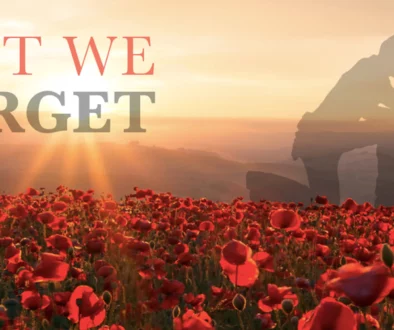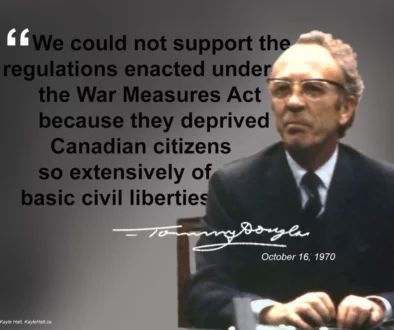Memorial TO SIR WILFRID LAURIER, PREMIER OF THE DOMINION OF CANADA
From the Chiefs of the Shuswap, Okanagan and Couteau Tribes of British Columbia.
Presented at Kamloops, 25th August, 1910 †
Dear Sir and Father,
We take this opportunity of your visiting Kamloops to speak a few words to you. We welcome you here, and we are glad we have met you in our country. We want you to be interested in us, and to understand more fully the conditions under which we live. We expect much of you as the head of this great Canadian Nation, and feel confident that you will see that we receive fair and honorable treatment. Our confidence in you has increased since we have noted of late the attitude of your government towards the Indian rights movement of this country and we hope that with your help our wrongs may at last be righted. We speak to you the more freely because you are a member of the white race with whom we first became acquainted, and which we call in our tongue “real whites.”
One hundred years next year they came amongst us here at Kamloops and erected a trading post. After the other whites came to this country in 1858 we differentiated them from the first whites as their manners were so much different, and we applied the term “real whites” to the latter (viz., the fur-traders of the Northwest and Hudson Bay companies. As the great majority of the companies employees were French speaking, the term latterly became applied by us as a designation for the whole French race.) The “real whites” we found were good people. We could depend on their word, and we trusted and respected them. They did not interfere with us nor attempt to break up our tribal organizations, laws, customs. They did not try to force their conceptions of things on us to our harm. Nor did they stop us from catching fish, hunting, etc. They never tried to steal or appropriate our country, nor take our food and life from us. They acknowledged our ownership of the country, and treated our chiefs as men. They were the first to find us in this country. We never asked them to come here, but nevertheless we treated them kindly and hospitably and helped them all we could. They had made themselves (as it were) our guests.
We treated them as such, and then waited to see what they would do.
As we found they did us no harm our friendship with them became lasting. Because of this we have a warm heart to the French at the present day. We expect good from Canada.
When they first came among us there were only Indians here. They found the people of each tribe supreme in their own territory, and having tribal boundaries known and recognized by all. The country of each tribe was just the same as a very large farm or ranch (belonging to all the people of the tribe) from which they gathered their food and clothing, etc., fish which they got in plenty for food, grass and vegetation on which their horses grazed and the game lived, and much of which furnished materials for manufactures, etc., stone which furnished pipes, utensils, and tools, etc., trees which furnished firewood, materials for houses and utensils, plants, roots, seeds, nuts and berries which grew abundantly and were gathered in their season just the same as the crops on a ranch, and used for food; minerals, shells, etc., which were used for ornament and for plants, etc., water which was free to all. Thus, fire, water, food, clothing and all the necessaries of life were obtained in abundance from the lands of each tribe, and all the people had equal rights of access to everything they required. You will see the ranch of each tribe was the same as its life, and without it the people could not have lived.
Just 52 years ago the other whites came to this country. They found us just the same as the first or “real whites” had found us, only we had larger bands of horses, had some cattle, and in many places we cultivated the land. They found us happy, healthy, strong and numerous. Each tribe was still living in its own “house” or in other words on its own “ranch.” No one interfered with our rights or disputed our possession of our own “houses” and “ranches,” viz., our homes and lives. We were friendly and helped these whites also, for had we not learned the first whites had done us no harm? Only when some of them killed us we revenged on them. Then we thought there are some bad ones among them, but surely on the whole they must be good. Besides they are the queens people. And we had already heard great things about the queen from the “real whites.” We expected her subjects would do us no harm, but rather improve us by giving us knowledge, and enabling us to do some of the wonderful things they could do. At first they looked only for gold. We know the latter was our property, but as we did not use it much nor need it to live by we did not object to their searching for it. They told us, “Your country is rich and you will be made wealthy by our coming. We wish just to pass over your lands in quest of gold.” Soon they saw the country was good, and some of them made up their minds, to settle it. They commenced to take up pieces of land here and there. They told us they wanted only the use of these pieces of land for a few years, and then would hand them back to us in an improved condition; meanwhile they would give us some of the products they raised for the loan of our land. Thus they commenced to enter our “houses,” or live on our “ranches.” With us when a person enters our house he becomes our guest, and we must treat him hospitably as long as he shows no hostile intentions. At the same time we expect him to return to us equal treatment for what he receives. Some of our Chiefs said, “These people wish to be partners with us in our country. We must, therefore, be the same as brothers to them, and live as one family. We will share equally in everything half and half in land, water and timber, etc. What is ours will be theirs, and what is theirs will be ours. We will help each other to be great and good.”
The whites made a government in Victoria perhaps the queen made it. We have heard it stated both ways. Their chiefs dwelt there. At this time they did not deny the Indian tribes owned the whole country and everything in it. They told us we did. We Indians were hopeful. We trusted the whites and waited patiently for their chiefs to declare their intentions toward us and our lands. We knew what had been done in the neighboring states, and we remembered what we had heard about the queen being so good to the Indians and that her laws carried out by her chiefs were always just and better than the American laws. Presently chiefs (government officials, etc.) commenced to visit us, and had talks with some of our chiefs. They told us to have no fear, the queens laws would prevail in this country, and everything would be well for the Indians here. They said a very large reservation would be staked off for us (southern interior tribes) and the tribal lands outside of this reservation the government would buy from us for white settlement. They let us think this would be done soon, and meanwhile until this reserve was set apart, and our lands settled for, they assured us we would have perfect freedom of traveling and camping and the same liberties as from time immemorial to hunt, fish, graze and gather our food supplies where we desired; also that all trails, land, water, timber, etc., would be as free of access to us as formerly. Our chiefs were agreeable to these propositions, so we waited for these treaties to be made, and everything settled. We had never known white chiefs to break their word so we trusted. In the meanwhile white settlement progressed. Our chiefs held us in check. They said, “Do nothing against the whites. Something we did not understand retards them from keeping their promise. They will do the square thing by us in the end.”
What have we received for our good faith, friendliness and patience? Gradually as the whites of this country became more and more powerful, and we less and less powerful, they little by little changed their policy towards us, and commenced to put restrictions on us. Their government or chiefs have taken every advantage of our friendliness, weakness and ignorance to impose on us in every way. They treat us as subjects without any agreement to that effect, and force their laws on us without our consent and irrespective of whether they are good for us or not. They say they have authority over us. They have broken down our old laws and customs (no matter how good) by which we regulated ourselves. They laugh at our chiefs and brush them aside. Minor affairs amongst ourselves, which do not affect them in the least, and which we can easily settle better than they can, they drag into their courts. They enforce their own laws one way for the rich white man, one way for the poor white, and yet another for the Indian. They have knocked down (the same as) the posts of all the Indian tribes. They say there are no lines, except what they make. They have taken possession of all the Indian country and claim it as their own. Just the same as taking the “house” or “ranch” and, therefore, the life of every Indian tribe into their possession. They have never consulted us in any of these matters, nor made any agreement, “nor” signed “any” papers with us. They have stolen our lands and everything on them and continue to use same for their own purposes. They treat us as less than children and allow us no say in anything. They say the Indians know nothing, and own nothing, yet their power and wealth has come from our belongings. The queens law which we believe guaranteed us our rights, the B.C. government has trampled underfoot. This is how our guests have treated us – the brothers we received hospitably in our house. After a time when they saw that our patience might get exhausted and that we might cause trouble if we thought all the land was to be occupied by whites they set aside many small reservations for us here and there over the country. This was their proposal not ours, and we never accepted these reservations as settlement for anything, nor did we sign any papers or make any treaties about same. They thought we would be satisfied with this, but we never have been satisfied and never will be until we get our rights. We thought the setting apart of these reservations was the commencement of some scheme they had evolved for our benefit, and that they would now continue until they had more than fulfilled their promises but although we have waited long we have been disappointed. We have always felt the injustice done us, but we did not know how to obtain redress. We knew it was useless to go to war. What could we do?
Even your government at Ottawa, into whose charge we have been handed by the B.C. government, gave us no enlightenment. We had no powerful friends. The Indian agents and Indian office at Victoria appeared to neglect us. Some offers of help in the way of agricultural implements, schools, medical attendance, aid to the aged, etc., from the Indian department were at first refused by many of our chiefs or were never petitioned for, because for a time we thought the Ottawa and Victoria governments were the same as one, and these things would be charged against us and rated as payment for our land, etc. Thus we got along the best way we could and asked for nothing. For a time we did not feel the stealing of our lands, etc., very heavily. As the country was sparsely settled we still had considerable liberty in the way of hunting, fishing, grazing, etc., over by far the most of it. However, owing to increased settlement, etc., in late years this has become changed, and we are being more and more restricted to our reservations which in most places are unfit or inadequate to maintain us. Except we can get fair play we can see we will go to the wall, and most of us be reduced to beggary or to continuous wage slavery. We have also learned lately that the British Columbia government claims absolute ownership of our reservations, which means that we are practically landless. We only have loan of those reserves in life rent, or at the option of the B.C. government. Thus we find ourselves without any real home in this our own country.
In a petition signed by fourteen of our chiefs and sent to your Indian department, July, 1908, we pointed out the disabilities under which we labor owing to the inadequacy of most of our reservations, some having hardly any good land, others no irrigation water, etc., our limitations re pasture lands for stock owing to fencing of so-called government lands by whites; the severe restrictions put on us lately by the government re hunting and fishing; the depletion of salmon by over-fishing of the whites, and other matters affecting us. In many places we are debarred from camping, traveling, gathering roots and obtaining wood and water as heretofore. Our people are fined and imprisoned for breaking the game and fish laws and using the same game and fish which we were told would always be ours for food. Gradually we are becoming regarded as trespassers over a large portion of this our country. Our old people say, “How are we to live? If the government takes our food from us they must give us other food in its place.” Conditions of living have been thrust on us which we did not expect, and which we consider in great measure unnecessary and injurious. We have no grudge against the white race as a whole nor against the settlers, but we want to have an equal chance with them of making a living. We welcome them to this country. It is not in most cases their fault. They have taken up and improved and paid for their lands in good faith. It is their government which is to blame by heaping up injustice on us. But it is also their duty to see their government does right by us, and gives us a square deal. We condemn the whole policy of the B.C. government towards the Indian tribes of this country as utterly unjust, shameful and blundering in every way. We denounce same as being the main cause of the unsatisfactory condition of Indian affairs in this country and of animosity and friction with the whites. So long as what we consider justice is withheld from us, so long will dissatisfaction and unrest exist among us, and we will continue to struggle to better ourselves. For the accomplishment of this end we and other Indian tribes of this country are now uniting and we ask the help of yourself and government in this fight for our rights. We believe it is not the desire nor policy of your government that these conditions should exist. We demand that our land question be settled, and ask that treaties be made between the government and each of our tribes, in the same manner as accomplished with the Indian tribes of the other provinces of Canada, and in the neighboring parts of the United States. We desire that every matter of importance to each tribe be a subject of treaty, so we may have a definite understanding with the government on all questions of moment between us and them. In a declaration made last month, and signed by twenty-four of our chiefs (a copy of which has been sent to your Indian department) we have stated our position on these matters. Now we sincerely hope you will carefully consider everything we have herewith brought before you and that you will recognize the disadvantages we labor under, and the darkness of the outlook for us if these questions are not speedily settled. Hoping you have had a pleasant sojourn in this country, and wishing you a good journey home,
we remain Yours very sincerely,
The Chiefs of the Shuswap, Okanagan and Couteau or Thompson tribes
Per their secretary, J.A. Teit



